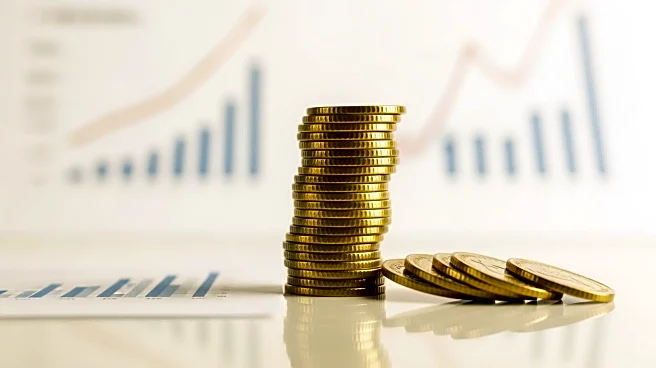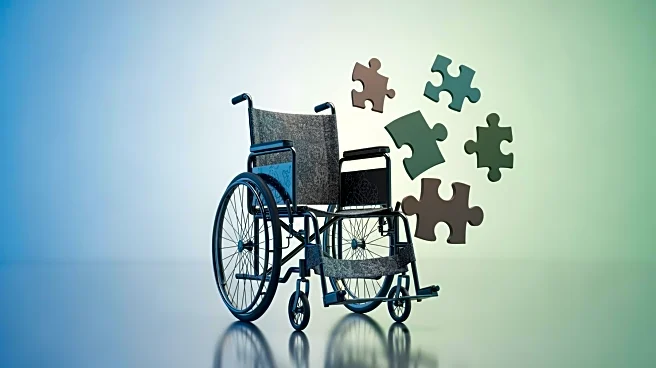What's Happening?
President Trump has proposed issuing $2,000 payments to Americans funded by tariff revenues collected by his administration. The proposal, announced via Truth Social, suggests excluding high-income individuals
from receiving these payments. The tariffs have generated significant revenue, with $195 billion collected so far this year, according to the Treasury Department. However, the specifics of eligibility and the implementation timeline remain unclear. Treasury Secretary Scott Bessent has indicated that the rebates could take various forms, including tax decreases, rather than direct payments.
Why It's Important?
The proposal could have significant implications for U.S. economic policy and public finances. If implemented, it would represent a novel use of tariff revenues, potentially providing direct financial relief to millions of Americans. However, the plan faces opposition from some lawmakers and lacks formal legislative backing. The proposal also raises questions about the sustainability of using tariff revenues for such payments, given the ongoing debate over national debt and fiscal responsibility.
What's Next?
The proposal's future depends on legislative approval and further clarification from the administration. Stakeholders, including Congress and economic advisors, will likely debate the feasibility and impact of such payments. The administration may need to address concerns about inflation and the long-term economic effects of distributing tariff revenues directly to citizens.








